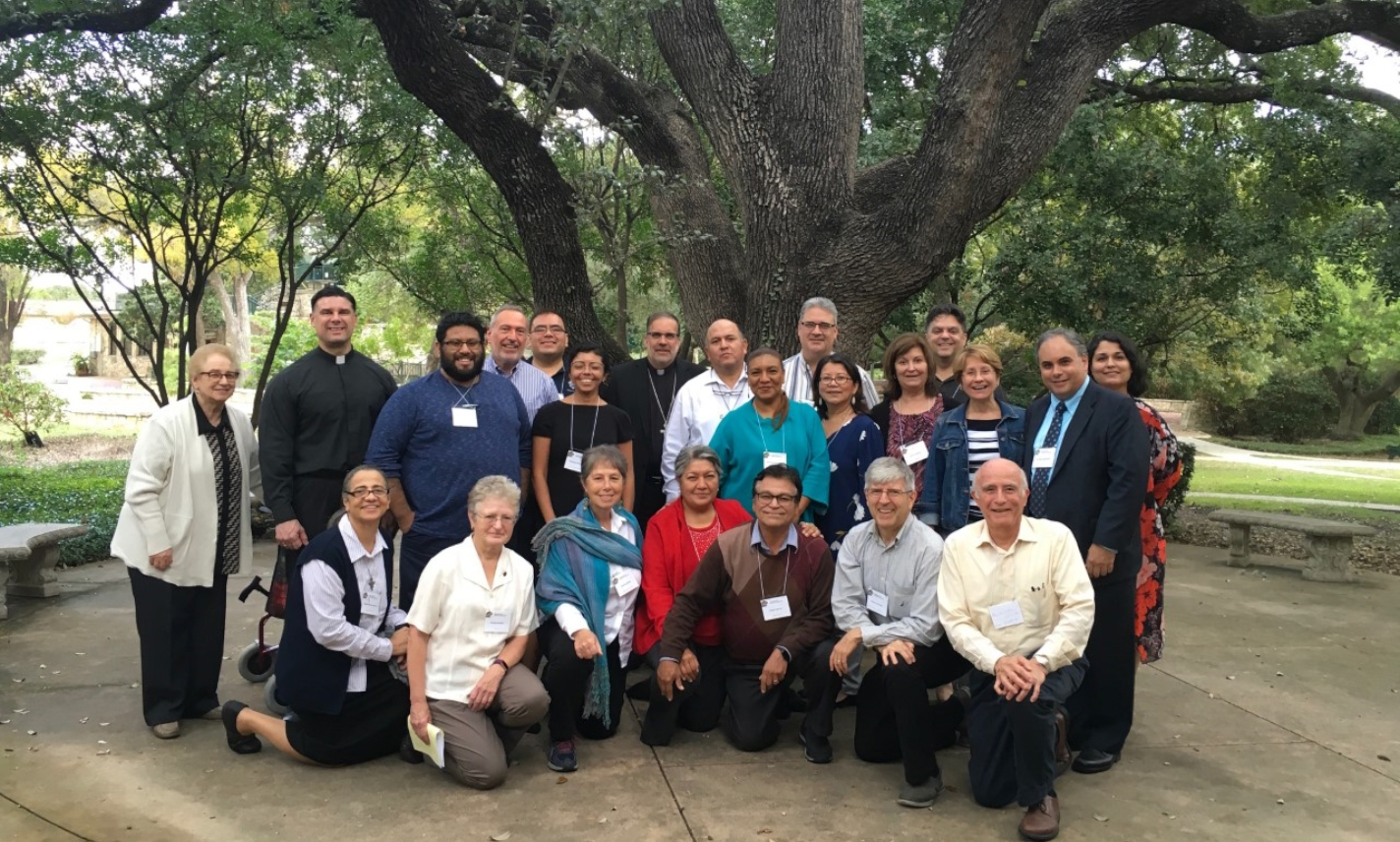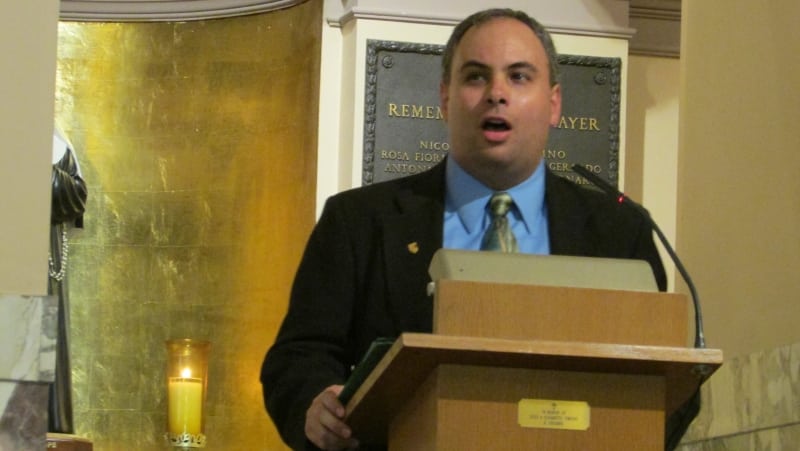Saturday of the Twenty-Ninth Sunday in Ordinary Time | October 26, 2019
The verse before the Gospel with the sung Alleluia for today’s readings is “I take no pleasure in the death of the wicked, says the Lord, but rather in their conversion that they may live.”
God does not desire suffering and wants everyone to live and be saved! What an amazing truth – indeed, an amazing grace! That grace interprets these readings for us, which, if we aren’t careful can be read in a very different way – a way which can present us with a false and terrible image of God if we aren’t careful.
We can read St. Paul’s injunction about turning aside from the ‘the flesh’ as him saying that God wants nothing to do with those who struggle with sin in their lives. That is what ‘the flesh’ means here; it isn’t St. Paul denying the beauty or the value of the body or our actual flesh. Here ‘the flesh’ is actually a spiritual disposition – that which tends away from God. Many Christians have in the past and still do interpret this passage wrongly by saying that Paul is saying the body is not important, only the Spirit.
Instead Paul reminds us that God wants us to turn from those dispositions that destroy us and towards God’s Spirit so that we may live – all of us, our whole selves – body and soul. “I believe in the resurrection of the body” the Apostles’ Creed says – and rightly so. God’s want people to know the life of salvation both in this life, and the life to come.
Similarly, we could look at the Gospel reading today of Jesus calling people out as sinners – almost as if he is shaking his finger at them and saying God is ready to punish you for your sins. He relates the stories of two historical events: a horrific story of torture and sacrilege committed by Pontius Pilate, in which some Jews from Galilee, who were probably arrested by the Romans for inciting violence against Rome. This wasn’t uncommon in occupied Palestine of the 1st century. They were tortured and killed by Pilate. Their blood was mixed by him into the sacrifices made to the Roman gods – a great sacrilege for the Jews. Jesus also mentions a horrible accident that killed many when the tower of Siloam fell on them.
If we view God a certain way, we hear these stories as if God is taking vengeance, or exacting punishment on the wicked. The people of Jesus’ time would have likely looked at the deaths of these people as a punishment from God. Instead, Jesus turns the tables on them in his preaching – as he often does – and says: You are no different than them.
Jesus message reminds us that when we give place in our lives for those things that turn us aside from the love of God: When we are selfish, when we hate, when we seek to destroy others, when we fill our lives up with wealth or power at the expense of others, we come to the same end – we die inside and potentially carry that emptiness and death into the next life.
But Jesus reminds that it isn’t God who is punishing us, but that we punish ourselves when we fail to reach out to our loving God, and accept his love into our lives, and share that love with others, and live that love.
The beautiful parable of the fig tree invites us to see Jesus’ invitation to bear the fruit in our lives that God has abundantly shared with us – the fruit of love, righteousness, justice and peace.
“I take no pleasure in the death of the wicked, says the Lord, but rather in their conversion that they may live.” God does not seek out ways to punish us, but to save us! Let us pray together today that we might abandon images of a vengeful God which do not point us to the truth or to the salvation Jesus offers, but instead recognize the God who lead us with shepherds care, with a mother’s love, with a Father’s grace, and gives us gifts to bear divine fruit in our lives and for the life of the world.
God give you peace!
+ + +
As Director of Certification for Ecclesial Ministry and Service at the United States Conference of Catholic Bishops (USCCB), I have the opportunity to record video reflections on the readings of the Scriptures proclaimed at daily Mass. I do so as part of larger group of colleagues at the Conference, along with lay and ordained leaders from around the country. I am grateful for the opportunity to reflect on the meaning of the readings for the life of faith today and to share them here, along with the written text of the reflections. To view these video reflections for past and upcoming celebrations of the Eucharist, visit the USCCB website.


 Request Dr. DelMonico's professional services for a liturgical, ministerial or leadership consultation, or for an academic or public presentation.
Request Dr. DelMonico's professional services for a liturgical, ministerial or leadership consultation, or for an academic or public presentation.